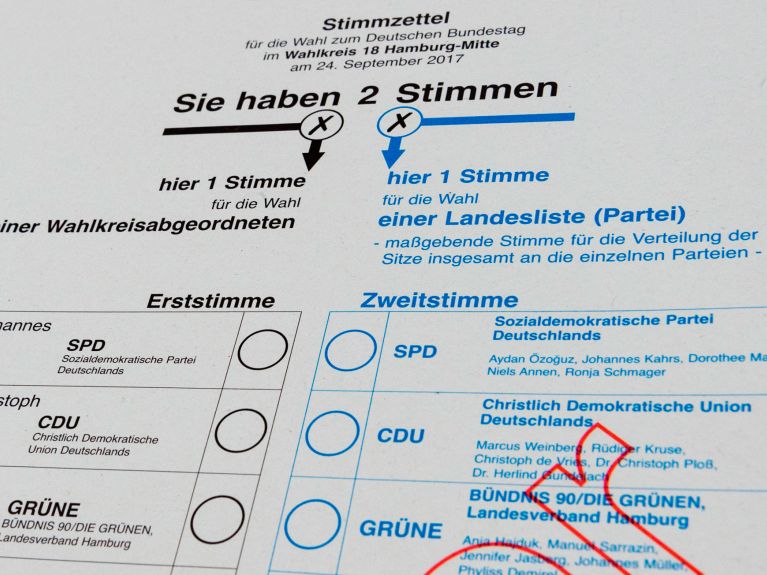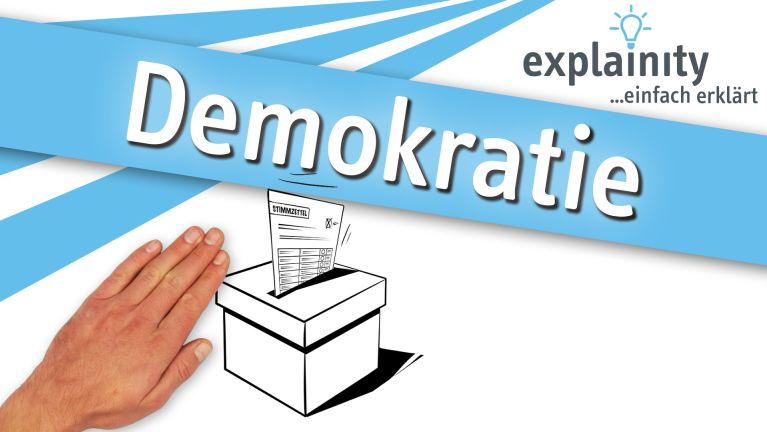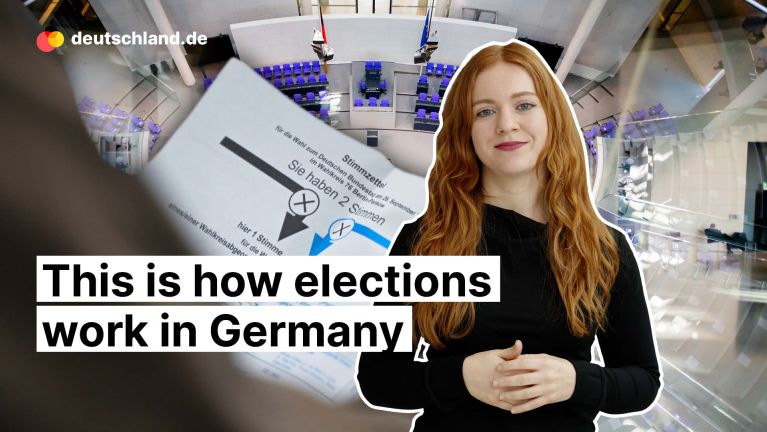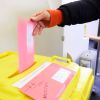This is the way the federal elections work
We explain why every citizen has two votes. Facts about the electoral system.

Germany. The core principle of democracy in Germany is stated in Article 20 of the Basic Law: “All power comes from the people”. Thus citizens elect representatives of their political interests, for the state form is representative democracy.
Dieses YouTube-Video kann in einem neuen Tab abgespielt werden
YouTube öffnenThird party content
We use YouTube to embed content that may collect data about your activity. Please review the details and accept the service to see this content.
Open consent formWhat are the tasks of the Bundestag?
The Bundestag is the parliament of the Federal Republic of Germany. Representatives of the people are MPs, who are elected for four years. The most important tasks of the Bundestag are the election of the Federal Chancellor, law-making and acting as a check on the government.
Why do voters have two votes?
The election system for the federal elections is that of a personalized proportional representation. Each voter sets two crosses on his or her ballot. The first vote decides which politician from his or her constituency will go to parliament as representative. Half of the seats in the Bundestag are assigned by these direct mandates; the other half by the state candidate lists of the parties. The political parties run candidates for the Bundestag in every federal state.
The voter gives his or her second vote to a party. The second vote has a greater weight because it defines the power relations in parliament: the number of seats for the individual parties.
Dieses YouTube-Video kann in einem neuen Tab abgespielt werden
YouTube öffnenThird party content
We use YouTube to embed content that may collect data about your activity. Please review the details and accept the service to see this content.
Open consent formHow many MPs are there in the Bundestag?
The Bundestag normally has 598 seats, but this figure can increase. Currently, in 20th Bundestag there are 735 MPs. This is because of excess mandates: for example, if the second vote entitles a party to 100 seats, but 110 of its candidates have been directly elected on the first vote, the additional ten may enter parliament. Lest the other parties are thereby disadvantaged, they too are allocated further seats on the basis of percentage.
Who can enter the Bundestag?
Only parties that have received at least five per cent of all second votes nationwide may enter the Bundestag. The five-per-cent-clause prevents too many small parties from being represented in the parliament, a circumstance that would make the formation of a government coalition more difficult.
Quick facts
Who elects the Federal Chancellor?
The head of government is not directly elected by the people, but by the MPs. The Chancellor candidate is proposed by the Federal President – as a rule, the candidate is from the party which has the majority in the Bundestag.
Who is eligible to vote and to be voted for?
There is an active and a passive right to vote. In federal elections every German citizen 18 years of age or older can vote. Legal age is also the prerequisite to be a candidate for the Bundestag. In the 2017 Bundestag elections there were about 61.5 million citizens eligible to vote – 31.7 million women and 28.8 million men.




